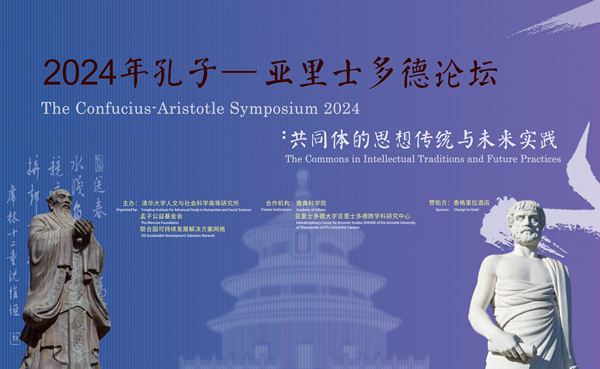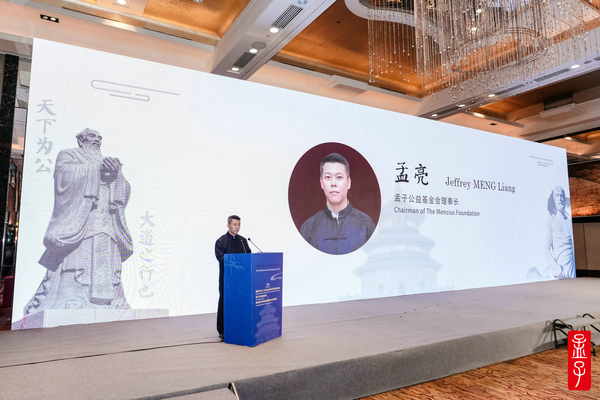
The Confucius-Aristotle Symposium 2024, co-organized by the Tsinghua Institute for Advanced Study in Humanities and Social Sciences, the Mencius Foundation, and the UN Sustainable Development Solutions Network (UN SDSN), was held in Beijing on July 11-12.
Themed "The Commons in Intellectual Traditions and Future Practice," the two-day event was attended by 101 scholars from 17 countries, including China, the United States, the United Kingdom, and Greece, with 66 international participants.
The forum aims to expand thinking on the concept of "community" and explore solutions to various contemporary global challenges, such as unequal development, changes in the international order, ecological and climate crises, and technological iterations through discussing how to draw upon the wisdom of ancient civilizations in the East and West.

Qiu Yong, Party chief of Tsinghua University, Jeffrey Sachs, president of UN SDSN, and Meng Liang, chair of the Mencius Foundation, delivered keynote speeches at the opening ceremony.
In his opening speech, Qiu remarked that the current changes in the world and this era are unfolding in unprecedented ways. To address the common challenges facing humanity, it is essential to harness the power of cultural dialogue to eliminate discrimination and prejudice, enhance understanding and trust, promote people-to-people connectivity, and strengthen unity and cooperation.
"The profound and enlightening thoughts of Confucius and Aristotle, as outstanding representatives of ancient Eastern and Western civilizations, transcend the course of history," Qiu said.
Hailing the event as a cross-temporal dialogue of civilizations and an academic feast of cultural exchanges, Qiu said his university is willing to play an active role in promoting educational exchanges and contributing to the creation of a better future for humanity.

Sachs noted the NATO-led military alliance is exacerbating global geopolitical tensions and escalating the risk of hegemony.
"But in my view, most of the world wants to find a way for peace, peaceful co-existence, and especially sustainable development that can bring us to safety on the planet with sustainable development entailing economic prosperity, social justice, and environmental sustainability," he said.
Sachs argued that ancient Eastern and Western philosophical thoughts, especially the concept of "harmony in diversity" embodied in Confucianism, hold significant relevance in addressing present-day challenges. He also called for collaborative efforts to develop a shared understanding of what content in the ancient Eastern and Western philosophies should be taught to students in the 21st century.

Meng emphasized that Mencius, as the inheritor and advocate of Confucian philosophy, put forward the concepts of "community" and "benevolent governance." He illustrated that Mencius exhorted feudal rulers to look beyond the narrow horizon of their palaces to cultivate a common bond with their ministers, clerks, and the masses and extend their ren, or benevolence, to the governed to preserve their wealth and power.
Meng saw a strong similarity between Mencius' teachings and Aristotle's theories of "justice" and "virtue", both still holding great relevance to contemporary governments and political leaders.










